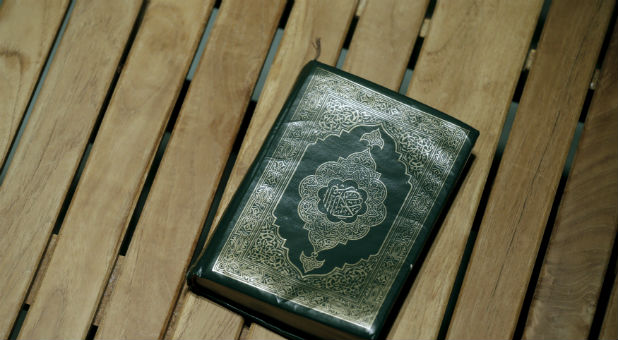In terms of religious discoveries, the announcement by the University of Birmingham that it has fragments from one of the world’s oldest Qurans is certainly a significant one.
But now, some are suggesting the fragments could be from the first complete version of the Quran commissioned by Abu Bakr, a companion of the Prophet Muhammad.
“This is a global jigsaw puzzle,” wrote Sean Coughlan in a BBC News article. “But some of the pieces have fallen into place.”
One of the most important parts of the discovery, which is generating the most controversy, involves questions about who could have commissioned the Quran and been able to mobilize the resources to produce it.
Jamal bin Huwareib, managing director of the Mohammed bin Rashid Al Maktoum Foundation, believes the manuscript in Birmingham is part of the first comprehensive written version of the Quran assembled by Abu Bakr, the Muslim caliph who ruled between A.D. 632 and 634.
“It’s the most important discovery ever for the Muslim world,” says bin Huwareib, who has visited Birmingham to examine the manuscript. “I believe this is the Quran of Abu Bakr.”
Academics believe the fragments are at least 1,370 years old and were once held in Egypt’s oldest mosque, the Mosque of Amr ibn al-As in Fustat.
They believe this because the Birmingham manuscript has a match at the national Library of France, the Bibliotheque Nationale de France.
The origin of the manuscript in Paris is known to have been the Mosque of Amr ibn al-As in Fustat. It was brought to Europe by Asselin de Cherville, the vice consul in Egypt when the nation was under the control of Napoleon’s armies in the early 1800s. It’s believed that Asselin de Cherville’s widow may have tried to sell this and other ancient Islamic manuscripts to the British Library in the 1820s, but they wound up at the national library in Paris.
Francois Deroche, a historian of the Koran at the College de France, says some of the manuscripts were later transferred from the mosque in Fustat to the national library in Cairo. En route, Deroche suspects the “folios must have been spirited away” and wound up in the antiquities market. The documents were sold and re-sold until the 1920s when Alphonse Mingana obtained them and brought them to Birmingham.
“Of course, no official traces of this episode were left, but it should explain how Mingana got some leaves from the Fustat trove,” Deroche says.
While Deroche and others believe they have traced the route of the manuscripts, the dates are more contentious. Radiocarbon dating puts the Birmingham documents at between 568 and 645.
The latter date is only 13 years after the death of the Prophet Muhammad in 632.
“The person who actually wrote it could well have known the Prophet Muhammad,” says David Thomas, Birmingham University’s professor of Christianity and Islam.
For the world’s Muslims, the idea that the Quran is a seventh-century text written by Islam’s founder isn’t news or even controversial.
But for academics, it’s a significant discovery.
“For researchers in Islamic studies, historical evidence dating the Quran back to Islam’s foundational era has proved elusive,” wrote Fozia Bora in a CNN article. “This has led to hotly contested academic debates about the early or late canonization of the Quran, with a small handful of scholars claiming that the book is a product of a much later (mid-eighth century and after) age of compilation or even confabulation, when ‘Abbasid-era scholars rationalized and expanded the Muslim religious corpus.”
See an error in this article?
To contact us or to submit an article





















